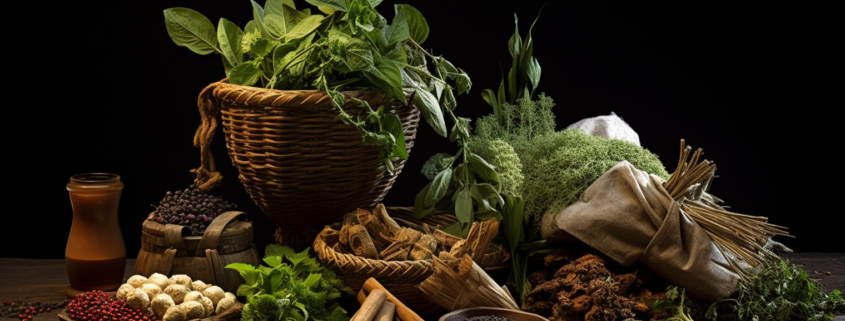USING NATURAL PLANT EXTRACTS IN EVERYDAY LIFE
Table of Contents
RESEARCH FOR Natural plant extracts AND SELECT REPUTABLE BRANDS:
When choosing natural plant extracts, research the brands that produce them. Look for companies that prioritize sustainability, transparency, and ethical sourcing. Trusted brands often provide detailed information about the sourcing and processing of their products.
CHECK THE INGREDIENT LIST:
Always scrutinize the ingredient list. A genuine natural plant extract should list the specific plant species or botanical name, not generic terms like “plant extract” or “natural fragrance.” The higher up on the ingredient list the extract appears, the more concentrated it is in the product.
CONSIDER EXTRACTION METHODS:
Different extraction methods yield varying levels of potency and purity. Some common extraction methods include cold-pressing, steam distillation, and solvent extraction. Research the extraction method used for the product you’re interested in to ensure it aligns with your preferences.
LOOK FOR CERTIFICATIONS:
Certifications such as USDA Organic, Fair Trade, or EcoCert can provide assurance of quality and ethical production practices. These certifications often require rigorous standards for sourcing and processing natural plant extracts.
START WITH PATCH TESTING:
Before incorporating a new natural plant extract into your skincare or dietary routine, perform a patch test. Apply a small amount to a small area of your skin to check for any adverse reactions or allergies.
TIPS FOR USING NATURAL PLANT EXTRACTS
FOLLOW USAGE GUIDELINES: Pay close attention to recommended usage guidelines provided by the manufacturer. Natural plant extracts are potent, and using them excessively can lead to adverse effects.
STORE PROPERLY: Proper storage is crucial to maintain the effectiveness of natural plant extracts. Most extracts should be stored in a cool, dark place away from direct sunlight and heat to prevent degradation.
COMBINE WITH CARRIER OILS: Many plant extracts are highly concentrated and may be too potent to use directly on the skin. Dilute them with a carrier oil like jojoba, coconut, or almond oil to ensure safe and effective application.
EDUCATE YOURSELF: Continue to educate yourself about the specific benefits and uses of natural plant extracts. Explore recipes and formulations for homemade skincare products or consult with a knowledgeable herbalist or aromatherapist for guidance.
FAQs ABOUT NATURAL PLANT EXTRACTS
1. ARE NATURAL PLANT EXTRACTS SAFE FOR ALL SKIN TYPES?
Natural plant extracts can be beneficial for various skin types, but it’s essential to choose extracts that suit your specific needs and consider potential allergies or sensitivities. Patch testing is recommended, and if you have sensitive skin, consult with a dermatologist.
2. CAN NATURAL PLANT EXTRACTS REPLACE SYNTHETIC MEDICATIONS?
While natural plant extracts offer numerous health benefits, they should not be use as a substitute for prescribed medications.Always with a healthcare professional before making any significant changes to your treatment plan.
3. HOW CAN I TELL IF A PRODUCT IS TRULY NATURAL AND FREE FROM HARMFUL ADDITIVES?
Look for products with transparent labeling, third-party certifications, and detailed ingredient lists. Research the brand’s reputation and values, and consider reaching out to them for additional information if needed.
4. WHAT’S THE SHELF LIFE OF NATURAL PLANT EXTRACTS?
The shelf life of natural plant extracts can vary depending on the type of extract and storage conditions. Typically, they can last anywhere from a few months to a couple of years. Check the product label for specific information and signs of expiration, such as changes in color or scent.
Incorporating natural plant extracts into your daily life can bring you closer to nature and its many benefits. However, remember that it’s essential to make informed choices and use these extracts responsibly. With proper research and usage, you can harness the power of plants to enhance your well-being and lead a more sustainable lifestyle




